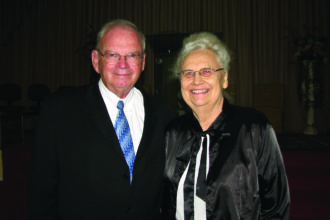Holding the phone in my hand, I crumpled to my knees as the realization hit me: my entire world would never be the same. In an instant, the life I thought I knew shattered into a million fragments. In the following weeks and months, the depths of deception came to light. My marriage, ministry, and family unraveled thread by thread—each morning brought the same question: What do I do now? Ministry was all I knew. Now, faced with the absence of income, job prospects, a marketable education, and a reliable plan B, I wondered what I would do.
To say my life was thrown into chaos feels like a gross understatement. It was like a hurricane, tornado, flood, and earthquake converged simultaneously. They left shifting sand and devastation in their wake. For months, the simple act of getting out of bed depleted every ounce of energy I had. It was all I could do to avoid losing my footing. I felt an overwhelming sense of hopelessness and panic like a power outage caught me unprepared in a windowless room. I found myself groping blindly in the dark, disoriented, terrified, and confused.
Reflecting on those dark months now, I realize God carried me through the heart of depression, always present, always loving. At my lowest, when words failed, all I could do was breathe the name of Jesus through my tears. All around was sinking sand, but somehow, in the middle of the chaos, I sensed God’s presence, unwavering, holding space with me and grieving alongside me.
How does one stay standing when all around is shifting sand, when their world is thrown into chaos, and they are forced to find a new normal? How does one find the strength, resilience, and faith to continue and rediscover peace amidst uncertainty?
First, seek solid ground. Knowing where to turn to regain our footing is key in times of crisis. I Peter 5:7 states, “Casting all your care upon him, for He careth for you.” We were never meant to bear our emotional stress in isolation. God’s compassion resonates throughout the Scriptures, emphasizing His concern for our well-being. Psalm 34:18 (NIV) assures us, “The Lord is close to the brokenhearted and saves those who are crushed in spirit.” As His children, we never have to hide our emotions from Him. He understands. What a relief! When we hurt, He draws near, wrapping us in His love and mercy, and carrying us until we regain our footing.
Does He always calm the storm? No, but He is the solid ground we can rest on until the storm calms around us.
Second, allow yourself time to grieve. It’s okay not to be okay when our world is upside down. It’s okay to question and be upset. Having emotions does not make us broken; it makes us human. Dr. Caroline Leaf, author of Switch on Your Brain, wrote, “It’s okay to be a mess. Emotions are not illnesses; emotions are beautiful things we get to experience.”
It’s essential to pause and come to terms with the storm you’re facing. The reality is that if we neglect to address trauma and accompanying emotions initially, they will inevitably resurface later, demanding to be addressed. Allow yourself time to grieve the life that is no more; grieve the future that will never be. Allow yourself space to process, identify, and address your emotions. Genuine recovery begins with recognition of what we are recovering from.
Third, know when to seek help. Galatians 6:2 instructs us to “Bear ye one another’s burdens.” God created humans to crave companionship. Our brokenness finds healing in community. While community, fellowship, and commonality play a crucial role in moving forward, we may need to go a step further. Seeking help is not a sign of weakness but a vital part of maintaining healthy mental and emotional well-being. Proverbs 4:23 (NIV) declares, “Above all else, guard your heart, for everything you do flows from it.” Prayer and digging into the Word are instrumental to finding peace amid life’s storms. Nevertheless, there are times when we may need to seek godly professional help.
Fourth, prioritize self-care. I Corinthians 3:16 reminds us that our bodies are God’s temple, and as such, we are responsible for being good stewards of them. Jesus provided us with the perfect model as He cared about others while caring for Himself, physically, mentally, and spiritually. He cultivated community, practiced gratitude, took time to eat and rest, prayed daily, and meditated on the Scriptures.
When we recognize the importance of caring for ourselves, we are better equipped to confront life’s challenges. Far from being a selfish indulgence, self-care is a Christian discipline and responsible stewardship. It reflects our commitment to preserve the gift entrusted to us by God, enabling us to be more effective in the world around us.
Lakelie Lopez is a credentialed UPCI minister with an MA in Human Services/Life Coaching. She lives in San Diego, California, serving in ministry alongside her husband, John Lopez.









